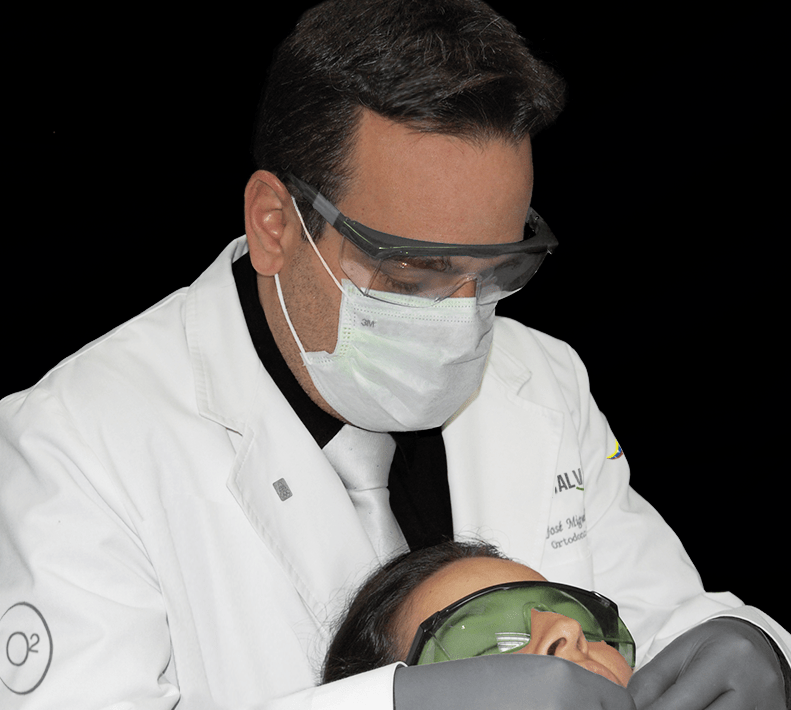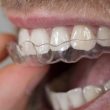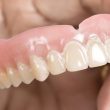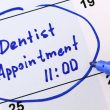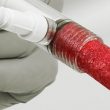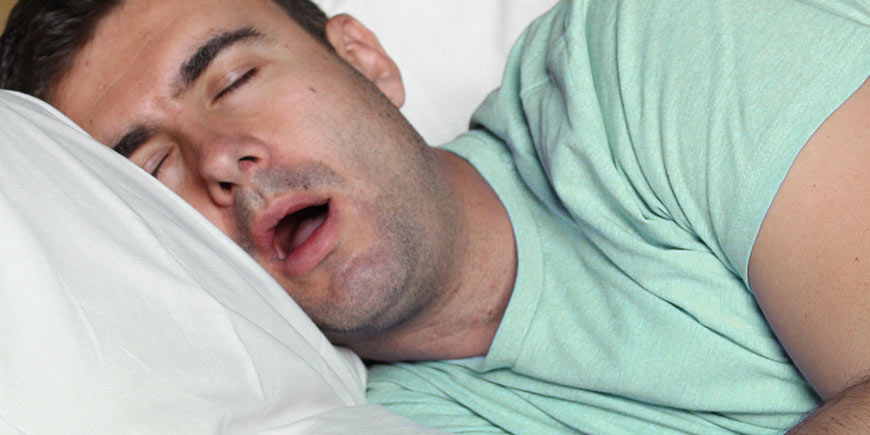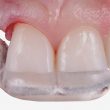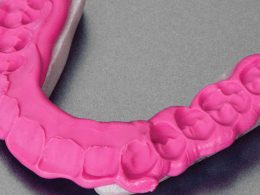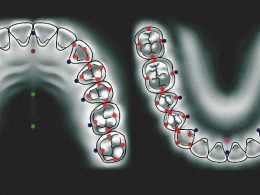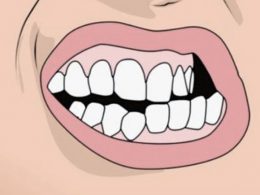Table of Contents
Clenching and grinding your teeth is a common involuntary reaction to anger, fear, or stress. In some people, this reaction plays out repeatedly through the day, even if they are not responding to an immediate stressor. This involuntary teeth grinding is known as bruxism.
Bruxism can happen while awake or asleep, but people are much less likely to know that they grind their teeth when sleeping. Because of the force applied during episodes of sleep bruxism, the condition can pose serious problems for the teeth and jaw and may require treatment to reduce its impact.
Night Grinding
Sleep bruxism is teeth grinding that happens during sleep. Sleep bruxism and bruxism while awake are considered to be distinct conditions, even though the physical action is similar. Of the two, awake bruxism is more common.
A key challenge with sleep bruxism is that it is much harder for people to be aware that they are grinding their teeth while sleeping. Relatedly, a sleeping person does not realize their bite strength, so they more tightly clench and grind their teeth, employing up to 250 pounds of force.
How Common Is this Type of Disturbance?
Sleep bruxism is more common in children, adolescents, and young adults than middle-aged and older adults. Exact numbers of how many people have sleep bruxism are hard to come by because many people are not aware that they grind their teeth.
Statistics about sleep bruxism in children are the hardest to pin down. Studies have found anywhere from around 6% to up to nearly 50% of children experience night-time teeth grinding. It can affect children as soon as teeth come in, so some infants and toddlers grind their teeth.
In adolescents, the prevalence of sleep bruxism is estimated to be around 15%. It becomes less common with age as around 8% of middle-aged adults and only 3% of older adults, are believed to grind their teeth during sleep.
What Are the Symptoms of Sleep Bruxism?
The main symptom of sleep bruxism is involuntary clenching and grinding of the teeth during sleep. The movements resemble chewing but generally involve more force.
People with sleep bruxism do not grind their teeth throughout the night. Instead, they have episodes of clenching and grinding. People may have very few episodes per night or up to 100. The frequency of episodes is often inconsistent, and teeth grinding may not occur every night.
Some amount of mouth movement is normal during sleep. Up to 60% of people make occasional chewing-like motions known as rhythmic masticatory muscle activities (RMMA), but in people with sleep bruxism, these occur with greater frequency and force.
The majority of sleep bruxism takes place early in the sleep cycle during stages 1 and 2 of non-REM sleep. A small percentage of episodes can arise during REM sleep.
It is normal for people who grind their teeth at night to not be cognizant of this symptom unless they are told about it by a family member or bed partner. However, other symptoms can be an indication of sleep bruxism.
Jaw pain and neck pain are two frequent signs of teeth grinding. These occur because of the tightening of these muscles during episodes of bruxism. Morning headaches that feel like tension headaches are another potential symptom. Unexplained damage to teeth can also be a sign of night-time clenching and grinding of teeth.
What Are Its Consequences?
Long-term consequences of sleep bruxism can include significant harm to the teeth. Teeth may become painful, eroded, and mobile. Dental crowns, fillings, and implants can also become damaged.
Teeth grinding can increase the risk of problems with the joint that connects the lower jaw to the skull, known as the temporomandibular joint (TMJ). TMJ problems can provoke difficulty chewing, chronic jaw pain, popping or clicking noises, locking of the jaw, and other complications.
Not everyone with sleep bruxism will have serious effects. The extent of symptoms and long-term consequences depend on the severity of the grinding, the alignment of a person’s teeth, their diet, and whether they have other conditions that can affect the teeth, like gastroesophageal reflux disease (GERD).
Night-time teeth grinding can also impact a bed partner. The noise from clenching and grinding can be bothersome, making it harder for a person sharing the bed to fall asleep or stay asleep as long as they would like.
What Causes Night Grinding?
Multiple factors influence the risk of sleep bruxism, so it is usually not possible to identify one single cause for why people grind their teeth. That said, certain risk factors are associated with a greater probability of sleep bruxism.
Stress is one of the most significant of these risk factors. Clenching the teeth when facing negative situations is a common reaction, and that can carry over to episodes of sleep bruxism. Teeth grinding is also believed to be connected to higher levels of anxiety.
Researchers have determined that night grinding has a genetic component and can run in families. As many as half of people with sleep bruxism will have a close family member who also experiences the condition.
Episodes of teeth grinding appear to be connected to changing sleep patterns or microarousals from sleep. Most teeth grinding is preceded by increases in brain and cardiovascular activity. This may explain the associations that have been found between sleep bruxism and obstructive sleep apnea (OSA), which causes temporary sleep interruptions from lapses in breathing.
Numerous other factors have been associated with sleep bruxism including cigarette smoking, alcohol consumption, caffeine intake, depression, and snoring. Further research is needed to better understand possible causal connections and whether and how these factors affect sleep bruxism.
How Is this Type of Bruxism Diagnosed?
Sleep bruxism is diagnosed by a Doctor or a Dentist, but the diagnostic process can vary depending on the type of health professional providing care.
An overnight study in a sleep clinic, known as polysomnography, is the most conclusive way to diagnose sleep bruxism. However, polysomnography can be time-consuming and expensive and may not be necessary in certain cases. Polysomnography can identify other sleep problems, like OSA, so it may be especially useful when a person has diverse sleep complaints.
For many people, the presence of symptoms like tooth damage and jaw pain combined with reports of teeth grinding from a bed partner may be sufficient to determine that a person has sleep bruxism.
Home observation tests can monitor for signs of teeth grinding, but these tests are considered to be less definitive than polysomnography.
What Are the Treatment Options?
Many clinicians consider that there is no treatment that can completely eliminate or cure teeth grinding during sleep, but several approaches can decrease episodes and limit damage to the teeth and jaw.
Some people who grind their teeth have no symptoms and may not need treatment. Other people may have symptoms or greater risk of long-term problems, and in these cases, treatment is usually necessary.
The best treatment for sleep bruxism varies based on the individual and should always be overseen by a Doctor or Dentist who can explain the benefits and downsides of a therapy in the patient’s specific situation.
Here we present the most conservative or simple treatment options:
Stress Reduction
High levels of stress contribute to bruxism when awake and asleep, so taking steps to reduce and manage stress may help naturally decrease teeth grinding.
Reducing exposure to stressful situations is ideal, but of course, it is impossible to completely eliminate stress. As a result, many approaches focus on combating negative responses to stress in order to reduce its impact.
Techniques for reframing negative thoughts are part of cognitive behavioral therapy for insomnia (CBT-I), a talk therapy for improving sleep that may address anxiety and stress as well. Improving sleep hygiene and employing relaxation techniques can have added benefits for falling asleep more easily.
Medications
Medications help some people reduce sleep bruxism. Most of these drugs work by altering brain chemicals to reduce muscle activity involved in teeth grinding. Botox injections are another way of limiting muscle movement and have shown effectiveness in more severe cases of sleep bruxism.
Most medications have side effects that may make them inappropriate for some patients or difficult to use over the long-term. It is important to talk with a Doctor before taking any medication for sleep bruxism, in order to best understand its potential benefits and side effects.
Mouthpieces
Various types of mouthpieces and mouthguards, sometimes called night guards, are used to reduce damage to the teeth and mouth that can occur because of sleep bruxism.
Dental splints can cover the teeth so that there is a barrier against the harmful impact of grinding. Splints are often specially designed by a Dentist for the patient’s mouth but are also sold over-the-counter. They may cover just a section of teeth or cover a wider area, such as the whole upper or lower teeth.
Other types of splints and mouthpieces, including mandibular advancement devices (MAD), work to stabilize the mouth and jaw in a specific position and prevent clenching and grinding. MAD work by holding the lower jaw forward, and they are commonly used to reduce chronic snoring.
Symptom Relief
Another component of treatment is relieving symptoms to better cope with sleep bruxism.
Avoiding gum and hard foods can cut down on painful movements of the jaw. A hot compress or ice pack applied to the jaw may provide temporary pain relief.
Facial exercises help some people reduce the pain in their jaw or neck. Facial relaxation and massage of the head and neck area may further reduce muscle tension. A Doctor or Dentist may be able to suggest specific exercises or make a referral to an experienced Physical Therapist or Massage Therapist.
“Unfortunately, Bruxism or Teeth Grinding Is a Multifactorial Pathological Entity and Difficult to Treat”.
DENTAL TIP
Complex or Advanced Cases
If your bruxism is not diagnosed or treated on time, it is very likely that, apart from the teeth, your muscles, temporomandibular joints and other components of the masticatory system will be affected.
In our article Management and Treatment of Temporomandibular Disorders you can learn about the most common treatment options for chronic or advanced occlusal problems.
The Smile of Your Dreams Awaits You in Venezuela!
A cost saving alternative to your local dental care.
DENTAL VIP offers dental services in Caracas to patients from North America, Europe and the Caribbean.
We designed all our services to meet the special needs and expectations of our guests travelling for treatment:
- 50-70% lower prices.
- Volume discounts.
- Free consultation (X-ray, dental quote and transport).
- Extended guarantee packages for all treatments.
- Shorter treatment times and no waiting list.
- Free all time patient support.
- Travel and hotel assistance.
- After-care services.
We wish to ensure that your visit not only saves you money but you receive the best care for your dental needs. DENTAL VIP is dedicated to provide value for your money in your dental treatment, travel, and stay in Caracas.
Do not compromise on quality for the price, visit us in Caracas for your treatment and allow yourself the best. Do not settle for awkward removable dentures, low-end dental implants, or only temporary solutions.
Do not waste any more time, contact us right now!
